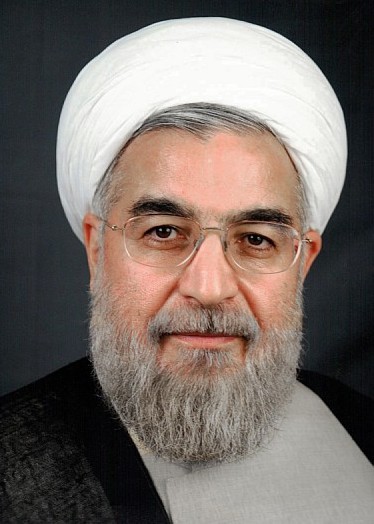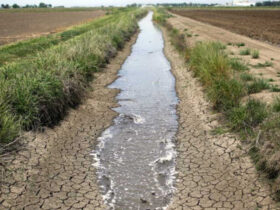
While the new leader was warmly met by the eager masses ready to move past the repressive Ahmadinejad era, there was no telling whether his words would bear fruit. Rouhani’s potential to affect such change was eclipsed by a shadow of doubt stemming from the supposition that he would serve as merely yet another slave to Supreme Leader Ayatollah Khamenei and his Islamic regime. So has Iran’s “angel” Rouhani upheld his rhetoric presented during his campaign since entering office? Now, more than 6 months into his presidency, the gulf between his words and actions can be qualitatively tracked.
Appeasing the Hardliners
How has Rouhani performed thus far in winning the favor of governmental hardliners while working towards his progressive reform plans? At the start of his presidency, Rouhani took initiative to begin thawing strained US-Iran relations with a visit to the United Nations. You may recall his fifteen-minute phone call with President Obama during the trip, a call that garnered both support and criticism. Regardless of the critics, this phone call was a huge first step in the right direction towards reconciling US-Iran relations considering that the two states have not shared this level of contact since the 1979 Iranian Revolution. Furthermore, Khamenei approved of Rouhani’s October trip to the United States. Although unable to appease hard-liners on the issue as they derided his approach, as long as the President is able to maintain the Supreme Leader’s support, he will be able to ward off hard-liner criticisms in his advances towards a relaxed relationship with the West.
Catering to Reformists
During his reign thus far, Rouhani has been performing a careful balancing act; he has struck a careful balance between the hardline and reformist camps while avoiding alienating Khamenei and other key government players. The new President has successfully garnered and maintained support from notable predecessors, including popular former reformist President Mohammad Khatami and former President Akbar Rafsanjani, one of the pillars of the 1979 Iranian Revolution, who remarked that “Rouhani’s success in New York is the mark of the divine victory.” Although not to the degree which former president Khatami was able to mobilize the “Iranian street,” Rouhani seems to have been met with considerable success in galvanizing the reformist camp, namely the youth who have warmly accepted his overtures to reduce Internet censorship.
Ending Sanctions
Perhaps his most significant achievement thus far has been unveiled at the negotiation table with Western powers. Back in November, Rouhani was able to successfully reach a temporary deal with the United States while entering into a year-long negotiation period to construct a permanent deal to ease sanctions. The $7-billion USD received by Iran in sanctions relief created room for a rise in the Iranian Rial and a minor stabilization of the national economy. Both the initial agreement and the overtures by both parties have been called nothing short of “historic” in the media.
Economic Viability
As mentioned, some of the easing of sanctions has seen a rise in the purchasing power of the Rial thereby providing Iranian citizens with some relief. Analyst groups claim that “last year, with economic pressure at its peak, Iran suffered from severe hyperinflation, and the Rial became the least valued currency in the world. This is no longer the case, as the Rial has gained significant value in 2013’. However, further economic steps must be made; the nuclear deal with the West has yet to come into full form, and whether Obama will be able to convince Congress to further repeal sanctions will prove to be a major determinant of whether Rouhani’s reform efforts retain momentum.
Relations With Israel
Thanks to his reputation as the new face of Iran, Rouhani has garnered a considerable amount of positive press and, for the most part, positive attention from the West – which has acted as a negative force against Israel. Within a month of Rouhani’s holding office, Israeli Prime Minister Benjamin Netanyahu dubbed him a “wolf in sheep’s clothing,” immediately dismissing him as nothing more than another mere slave to the Islamic regime. However, it seems that Israel emerged as the real loser in this love triangle between the United States, Iran and itself, failing to turn the West against its enemy as it had hoped. Within weeks after the Prime Minister’s fiery comment, Iran successfully brokered the temporary deal with the United States. Since then, public Israeli threats and comments against the country have subsided as the country now seems more preoccupied with the Palestinian question than the Iranian-nuclear issue at the moment.
Human Rights
The human rights issue is arguably the weakest front of Rouhani’s presidency thus far. The leader’s promises on this subject seem to be little more than empty rhetoric, as notable action has yet to be taken to restore basic human rights and create equality among members of the citizenry. Premature optimism for Rouhani to improve civil rights issues has all but withered as the only observable change has been a steep rise in executions since he took office.
Another warning sign in his term stems from the detainment of prisoners within the country. The government’s minor gesture of releasing a few political prisoners in December did little to placate the mounting concerns of relatives and families of those still imprisoned, including activists of the “Iranian Street.” Additionally, despite early promises to address the house arrests of Green Revolution leaders Kharibi and Mousavi’s house arrests, not even a mention of the issue has been made. The president has remained silent even amidst mounting claims from close family and friends that their health is deteriorating significantly as a result of being confined within their households for several years now.
Whether Rouhani’s strategy to maintain popular support follows that of his predecessor Khatami’s path remains to be seen. In the middle of Khatami’s second term, his base fell apart due to youth and women disenfranchisement. Rouhani’s track record on human rights and freedoms may very well be what determines his support from his base.
Implications for U.S.-Iran Relations
Despite his shortcomings on the human rights dilemma, Rouhani’s successes have provided the Iranian regime with some degree of legitimacy it had been lacking for years, both in the eyes of the international community and the Iranian electorate. The real question for the Obama administration, however, is whether the Rouhani government’s newfound political capital and prestige is enough to placate conservative Hawks in Congress on both sides of the aisle who have been itching to introduce further sanctions. Any new congressional sanctions against Iran would not only spell the end of the current deal but would most likely set back nuclear negotiations by a number of years. Yet Rouhani, a veteran statesman and diplomat, is keenly aware that the halls of Congress are just as significant an arena for statecraft and diplomacy as the negotiating table. Rouhani’s foreign minister Javad Zarif has recently made a concerted effort to promote lobbying of their position to Congress via the small-but-growing Iranian-American lobby already present in the country.We will know soon enough how far Rouhani is willing to go to make good on his campaign promises in seeking to uplift the Iranian state.
The views expressed by the author do not necessarily reflect those of the Glimpse from the Globe staff and editorial board.







